Ethical hacking includes an authorized attempt to gain unauthorized access to a computer system, application or data. Ethical hacking involves imitating the strategies and actions of malicious attackers. This practice helps to identify security vulnerabilities that can be resolved when a malicious attacker has the opportunity to exploit them.
Also known as “white hats”, ethical hackers are security experts who make these assessments. The proactive work they do helps in improving the security situation of the organization. Ethical hacking’s mission is the opposite of malicious hacking, with prior approval from the organization or owner of the IT asset.
The term ‘Hacker’ was coined to describe experts who used their skills to re-develop mainframe systems, increasing their efficiency and allowing them to multi-task. Nowadays, the term routinely describes skilled programmers who gain unauthorized access into computer systems by exploiting weaknesses or using bugs, motivated either by malice or mischief. For example, a hacker can create algorithms to crack passwords, penetrate networks, or even disrupt network services.
The primary motive of malicious/unethical hacking involves stealing valuable information or financial gain. However, not all hacking is bad. This brings us to the second type of hacking: Ethical hacking. So what is ethical hacking, and why do we need it? And in this article, you will learn all about what is ethical hacking and more, including:

What are the key concepts of ethical hacking ?
Hacking experts adhere to four key protocol concepts:
- Stay legal. Obtain proper approval before accessing and performing a security assessment.
- Define the scope. Determine the scope of the assessment so that the ethical hacker’s work remains legal and within the organization’s approved boundaries.
- Report vulnerabilities. Notify the organization of all vulnerabilities discovered during the assessment. Provide remediation advice for resolving these vulnerabilities.
- Respect data sensitivity. Depending on the data sensitivity, ethical hackers may have to agree to a non-disclosure agreement, in addition to other terms and conditions required by the assessed organization.
How are ethical hackers different than malicious hackers ?
Ethical hackers use their knowledge to secure and improve organizations’ technology. They provide an essential service to these organizations by looking for vulnerabilities that could lead to a security breach.
An ethical hacker reports the identified vulnerabilities to the organization. Additionally, they provide remedial advice. In many cases, with the consent of the organization, the ethical hacker re-tests to fully resolve the vulnerabilities.
Malicious hackers intend to gain unauthorized access to a resource (the more sensitive the better) for financial gain or personal identification. Some malicious hackers spoof websites or crash backend servers to prank, damage reputation, or cause financial loss. The methods used and vulnerabilities found are not reported. They are not concerned with improving the security posture of organizations.
What skills and certifications should an ethical hacker obtain ?
An ethical hacker must have a wide range of computer skills. They often specialize in becoming subject matter experts (SME) in a particular area of the ethical hacking domain.
All ethical hackers should have:
- Expertise in scripting languages.
- Proficiency in operating systems.
- A thorough knowledge of networking.
- A solid foundation in the principles of information security.
Some of the most well-known and acquired certifications include:
- EC Council: Certified Ethical Hacking Certification
- Offensive Security Certified Professional (OSCP) Certification
- CompTIA Security+
- Cisco’s CCNA Security
- SANS GIAC
What problems does hacking identify ?
When assessing the security of an organization’s IT asset(s), ethical hacking aims to imitate an attacker. In doing so, they look for attack vectors against the target. The initial goal is to conduct reconnaissance, while obtaining as much information as possible.
Once an ethical hacker has gathered enough information, they use it to look for vulnerabilities against the asset. They do this assessment in conjunction with automated and manual testing. Even sophisticated systems can have complex modeling technologies that can be vulnerable.
They don’t stop at highlighting weaknesses. Ethical hackers use exploits against vulnerabilities to prove how a malicious attacker can exploit it.
Some of the most common vulnerabilities discovered by ethical hackers include:
- Injection attacks
- Broken authentication
- Security misconfigurations
- Use of components with known vulnerabilities
- Sensitive data exposure
After the testing period, ethical hackers prepare a detailed report. This documentation includes steps to compromise the discovered vulnerabilities and steps to patch or mitigate them.
What are some limitations of ethical hacking ?
- Limited scope. Ethical hackers cannot progress beyond a defined scope to make an attack successful. However, it’s not unreasonable to discuss out of scope attack potential with the organization.
- Resource constraints. Malicious hackers don’t have time constraints that ethical hackers often face. Computing power and budget are additional constraints of ethical hackers.
- Restricted methods. Some organizations ask experts to avoid test cases that lead the servers to crash (e.g., Denial of Service (DoS) attacks).

- White Hat vs. Black Hat Hacker
- Roles and responsibilities of an Ethical Hacker
- Benefits of Ethical Hacking
- Skills required to become an Ethical Hacker
The practice of ethical hacking is called “white hat” hacking, and those who do it are called white hat hackers. Unlike ethical hacking, “black hat” hacking describes practices related to security breaches. Black hat hackers use illegal techniques to compromise systems or destroy information.
Unlike white hat hackers, “grey hat” hackers do not ask permission before getting into your system. But Gray Hats are also different from Black Hats as they do not do hacking for any personal or third party profit. These hackers have no malicious intent and hack systems for fun or various other reasons, usually by notifying the owner of any threats. Gray hat and black hat hacking are both illegal because they both constitute an unauthorized system breach, even though the intentions of the two types of hackers are different.
White Hat vs Black Hat Hacker
The best way to differentiate between White Hat and Black Hat hackers is by taking a look at their motives. Black Hat hackers are motivated by malicious intent, manifested by personal gains, profit, or harassment; whereas White Hat hackers seek out and remedy vulnerabilities, so as to prevent Black Hats from taking advantage.
The other ways to draw a distinction between White Hat and Black Hat hackers include:
-
Techniques Used
White Hat hackers duplicate the techniques and methods followed by malicious hackers in order to find out the system discrepancies, replicating all the latter’s steps to find out how a system attack occurred or may occur. If they find a weak point in the system or network, they report it immediately and fix the flaw.
-
Legality
Even though White Hat hacking follows the same techniques and methods as Black Hat hacking, only one is legally acceptable. Black Hat hackers break the law by penetrating systems without consent.
-
Ownership
White Hat hackers are employed by organizations to penetrate their systems and detect security issues. Black hat hackers neither own the system nor work for someone who owns it.
After understanding what is ethical hacking, the types of ethical hackers, and knowing the difference between white-hat and black-hat hackers, let’s have a look at the ethical hacker roles and responsibilities.
Ethical Hacker Roles and Responsibilities
Ethical Hackers must follow certain guidelines in order to perform hacking legally. A good hacker knows his or her responsibility and adheres to all of the ethical guidelines. Here are the most important rules of Ethical Hacking:
- An ethical hacker must seek authorization from the organization that owns the system. Hackers should obtain complete approval before performing any security assessment on the system or network.
- Determine the scope of their assessment and make known their plan to the organization.
- Report any security breaches and vulnerabilities found in the system or network.
- Keep their discoveries confidential. As their purpose is to secure the system or network, ethical hackers should agree to and respect their non-disclosure agreement.
- Erase all traces of the hack after checking the system for any vulnerability. It prevents malicious hackers from entering the system through the identified loopholes.
Ethical Hacking Benefits
Learning ethical hacking involves studying the mindset and techniques of black hat hackers and testers to learn how to identify and correct vulnerabilities within networks. Studying ethical hacking can be applied by security pros across industries and in a multitude of sectors. This sphere includes network defender, risk management, and quality assurance tester.
However, the most obvious benefit of learning ethical hacking is its potential to inform and improve and defend corporate networks. The primary threat to any organization’s security is a hacker: learning, understanding, and implementing how hackers operate can help network defenders prioritize potential risks and learn how to remediate them best. Additionally, getting ethical hacking training or certifications can benefit those who are seeking a new role in the security realm or those wanting to demonstrate skills and quality to their organization.
You understood what is ethical hacking, and the various roles and responsibilities of an ethical hacker, and you must be thinking about what skills you require to become an ethical hacker. So, let’s have a look at some of the ethical hacker skills.
Skills Required to Become an Ethical Hacker
An ethical hacker should have in-depth knowledge about all the systems, networks, program codes, security measures, etc. to perform hacking efficiently. Some of these skills include:
- Knowledge of programming – It is required for security professionals working in the field of application security and Software Development Life Cycle (SDLC).
- Scripting knowledge – This is required for professionals dealing with network-based attacks and host-based attacks.
- Networking skills – This skill is important because threats mostly originate from networks. You should know about all of the devices present in the network, how they are connected, and how to identify if they are compromised.
- Understanding of databases – Attacks are mostly targeted at databases. Knowledge of database management systems such as SQL will help you to effectively inspect operations carried out in databases.
- Knowledge of multiple platforms like Windows, Linux, Unix, etc.
- The ability to work with different hacking tools available in the market.
- Knowledge of search engines and servers.
What Next?
Ethical Hacking is a challenging area of study as it requires mastery of everything that makes up a system or network. This is why certifications have become popular among aspiring ethical hackers.
This article has helped you understand what is ethical hacking, and the roles and responsibilities of an ethical hacker. Now, if you are planning to step into the world of cybersecurity, you can easily jump in with the relevant Ethical Hacking certifications, and you can advance your career in cybersecurity in the following ways:
- Certified individuals know how to design, build, and maintain a secure business environment. If you can demonstrate your knowledge in these areas, you will be invaluable when it comes to analyzing threats and devising effective solutions.
- Certified cybersecurity professionals have better salary prospects compared to their non-certified peers. According to Payscale, Certified Ethical Hackers earn an average salary of $90K in the U.S.
- Certification validates your skills in the field of IT security and makes you more noticeable while applying for challenging job roles.
- With the growing incidents of security breaches, organizations are investing hugely in IT security and prefer certified candidates for their organization.
- Startups need highly skilled professionals experienced in repelling cyber threats. A certification can help you demonstrate your IT security skills to earn high-paying jobs at startups.
In today’s world, cybersecurity has become a trending topic of increasing interest among many businesses. With malicious hackers finding newer ways to breach the defenses of networks almost every day, the role of ethical hackers has become increasingly important across all sectors. It has created a plethora of opportunities for cybersecurity professionals and has inspired individuals to take up ethical hacking as their career. So, if you have ever considered the possibilities of getting into the cybersecurity domain, or even just upskilling, this is the perfect time to do so. And of course, the most efficient way of accomplishing this is by getting certified in ethical hacking and the best way to do that is to let ITJD help you achieve it! Check them out now, and join the fight for secure systems!


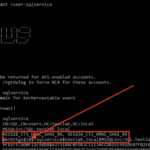
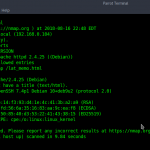


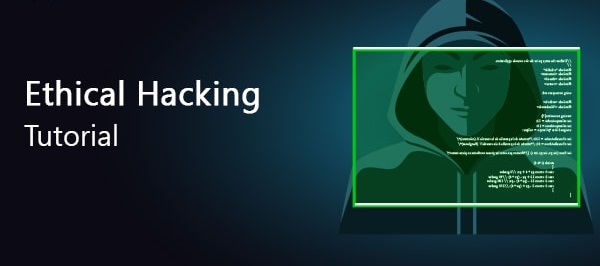

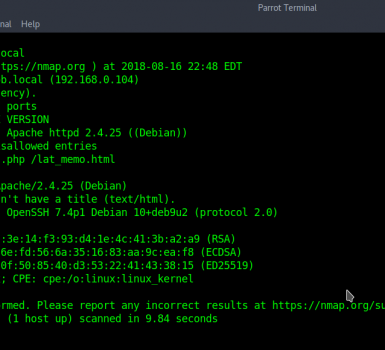

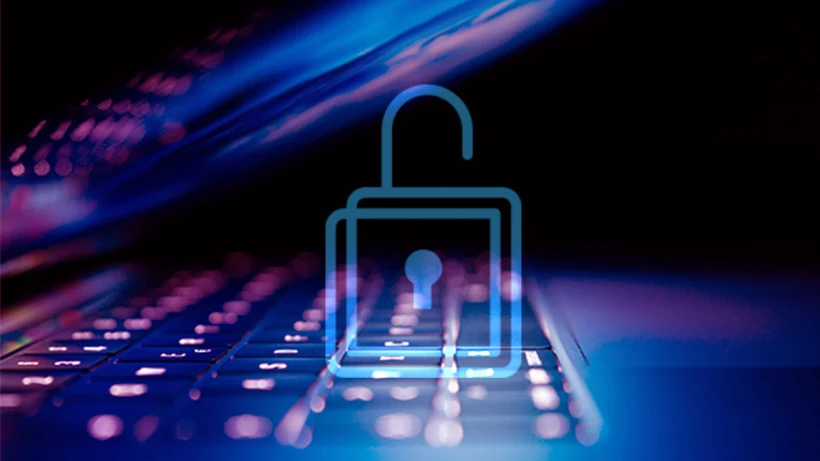
I enjoy you because of your own efforts on this site. My daughter loves engaging in investigation and it’s easy to see why. A lot of people learn all regarding the powerful medium you provide vital things through the blog and as well encourage contribution from other people on that idea plus our own daughter is truly discovering a lot. Take advantage of the rest of the new year. You have been conducting a dazzling job. blog
I always use url shortener
It is very helpful.